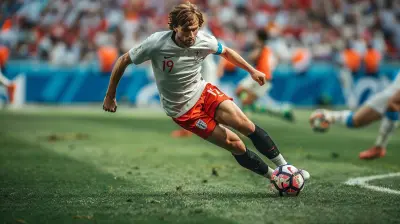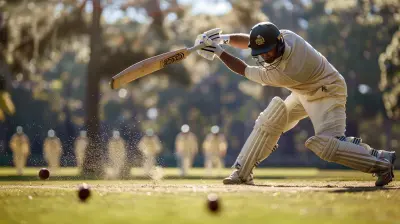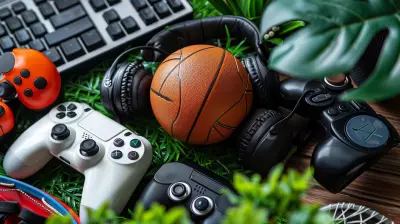The Role of Self-Belief in Sports: How Confidence Fuels Performance
25 November 2025
Let’s set the scene. You’re 1-on-1 with your opponent, the scoreboard is tied, and the clock is ticking down. You know the play. You’ve done this a thousand times in practice. But this time, it feels different. All eyes are on you. Your palms are sweating a little, heart pounding like it’s trying to hammer its way out of your chest. What happens next?
That’s where self-belief kicks in. Or doesn’t.
You see, sports aren’t just about muscles, speed, or the number of hours in the gym. Nope. Some of the most clutch athletic moments in history have had more to do with what's going on between the ears than what’s happening physically. Let’s dive into why confidence isn’t just a nice-to-have in athletics—it’s the secret sauce that separates legends from could-have-beens.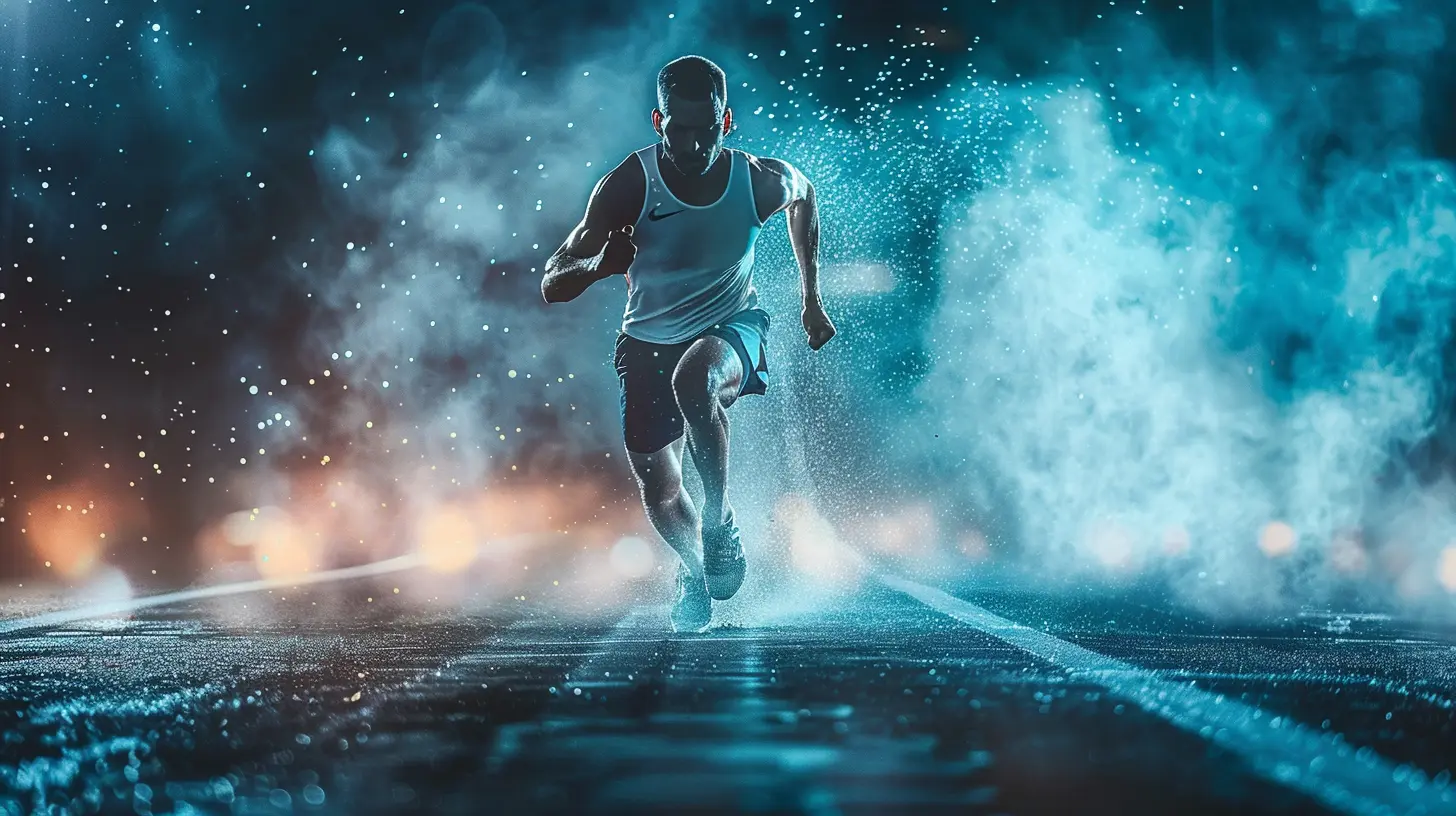
What Exactly Is Self-Belief in Sports?
Let’s break it down. Self-belief in sports is that unshakable confidence in your own abilities. It's that little voice in your head saying, “I’ve got this,” even when the pressure is doing its best to convince you otherwise.It’s not about arrogance, bragging rights, or thinking you’re the next LeBron without practicing your jump shot. It’s about an internal trust—knowing you’ve put in the work, and believing that you can perform when it counts.
Think of confidence like the steering wheel of a car. Your talent is the engine. Without the steering wheel, you're just a fast-moving vehicle with no control. Might be impressive for a moment… until you crash into a wall of self-doubt.
Why Confidence Is Just As Important As Skill
You could have all the skills in the world—shoot like Steph, run like Usain, or jump like Simone—but if you don’t believe in yourself when it matters, that talent might as well be tucked away in your locker.Let’s face it, high-pressure moments can make even the most skilled unglue like a wet sticker. Confidence acts like your mental armor. It keeps your focus sharp, your nerves calm, and your performance at its peak.
Ever Heard of “Choking”?
Classic example: an athlete who performs great in practice but flops during the game. Why? Because when anxiety walks through the door, self-belief sometimes bolts out the back."Choking" usually happens when athletes overthink, doubt themselves, or play it too safe. Confidence helps kill that noise. It frees you up to play instinctively, not tensely. When you trust yourself, you stop worrying about messing up and start focusing on making the play.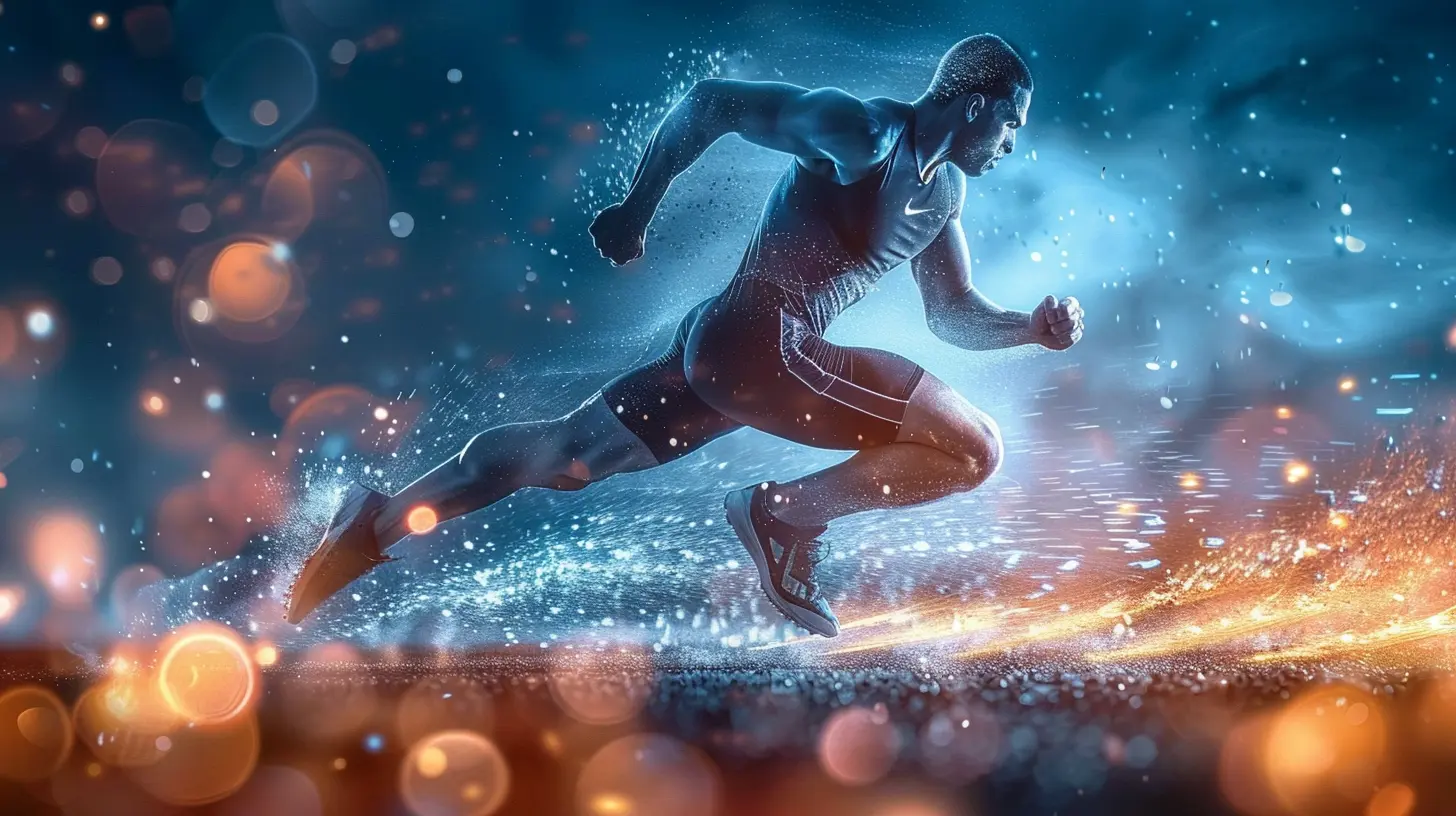
The Science Behind Confidence (Yep, It’s a Thing)
Confidence isn't just some feel-good fluff. It’s got science backing it up—and no, we’re not talking about horoscopes and moon phases here.Psychologists say that athletes with higher self-confidence are more likely to set challenging goals, show greater motivation, and bounce back quicker from failures. Basically, confidence sets your mental thermostat to "Let’s freaking go" instead of "Oof, maybe next time."
Even studies in sports psychology show that self-confidence correlates with better performance. It affects:
- Focus
- Decision-making speed
- Stress response
- Risk-taking (the smart kind)
So yeah, it’s not just in your head. Well… actually it is, but it’s got real-world impact.
Real-World Examples: Athletes Who Made Confidence Their Superpower
Let’s bring in the big guns for a sec.Muhammad Ali
The man didn’t just float like a butterfly and sting like a bee—he believed in every syllable of it. Ali’s confidence was legendary. He’d declare a win before the fight even started. And more times than not, he backed it up because he genuinely believed he could.Serena Williams
She’s one of the most dominant athletes in history, not just because she can annihilate a tennis ball, but because she believes in her ability to do so—even when the world doubted her. Her self-belief through injuries, comebacks, and criticism is next level.Michael Jordan
MJ was cut from his high school team, remember? But he never let that define him. His confidence became deadly. That guy wanted the ball in every clutch moment because he knew he could make it happen.These legends didn’t just win because they were talented. It was their mental edge—the belief that they could rise to any challenge—that made them unstoppable.
How to Build Self-Belief (Without Turning Into a Walking Ego)
Okay so, confidence sounds great, but what if you’re the kind of athlete who doubts their every move? Good news: confidence is a skill. And like any skill, you can work on it.1. Get Cozy With Failure
Here’s a hard truth: you’re going to mess up. Missed shots, lost races, fumbles—you name it. But instead of letting failure punch you in the gut, treat it like a sparring partner. It hurts, yeah, but it makes you tougher.Failure shows you what to work on. And every time you bounce back, you’re building a stronger, more resilient version of yourself.
2. Celebrate the Small Wins
Confidence grows in the margins. Hit a new PR? Nailed a move in practice you’ve been working on? Celebrate that stuff. Every win—no matter how small—is proof that you’re improving.Don’t just wait for big trophies to feel proud. Build your belief brick by brick.
3. Positive Self-Talk Isn’t Just a Motivational Poster
If you talk to yourself like a grumpy coach who hasn’t slept in three weeks, don’t be surprised if your confidence drops. Flip the script.Instead of “I always screw this up,” try “I’ve worked hard for this moment. I can handle it.” Sounds cheesy, but your brain believes what you feed it.
4. Visualize Success Like You’re Making a Highlight Reel
Mental reps are just as important as physical ones. Take time to visualize yourself succeeding—making the shot, running the perfect route, spiking the ball. It primes your brain and builds belief.Your mind can’t always tell the difference between real and imagined success. So give it something good to chew on.
5. Surround Yourself With Believers
If your circle is full of people who doubt you, criticize more than they support, or constantly rain on your parade—grab an umbrella and walk away.Confidence is contagious. Surround yourself with teammates, coaches, and friends who lift you up. Who remind you what you’re capable of on your worst days.
When Confidence Crosses the Line (And Takes a Nosedive into Cockyville)
Now, a quick PSA: Confidence is a powerful tool, but overconfidence? That’s a slippery slope. You know the type—talks big, trains small, gets humbled fast.Being confident doesn’t mean you stop working hard or ignore your weaknesses. It means you recognize your strengths and constantly work to sharpen them. Stay humble, stay hungry.
Remember: arrogance says “I’m already the best.” Confidence says “I’ve got the tools to be the best, and I’m not done grinding.”
Confidence Under Pressure: The Make-or-Break Factor
Game on the line? Finals coming up? Pressure feels like an elephant sitting on your chest? That’s when confidence truly gets tested.The difference between melting under the spotlight or shining in it often comes down to belief. When the heat is on, athletes who’ve built their confidence through the reps, the failures, the self-talk—they’re the ones who rise.
They don’t panic. They don’t second-guess. They trust their training and perform like they’ve done it a million times—even if it's their first rodeo.
Clutch isn’t luck. It’s the byproduct of deep, unshakable confidence.
Confidence and Team Sports: Group Vibes Matter Too
Self-belief isn’t just a solo sport. In team games, confidence spreads like wildfire—or fizzles out just the same.If one player thinks they’re worthless, it drags the whole vibe down. But when a team collectively believes they’ve got what it takes? Watch out.
Coaches matter here too. Ever heard a coach say, “I believe in you” at just the right moment? That stuff can light a fire in a player that no stat sheet ever could.
So yeah, believe in yourself, but also believe in the squad. Confidence builds chemistry.
Final Whistle: Why Self-Belief Might Be The Greatest Performance Enhancer of All
Self-belief isn’t some fluffy mental hack—it’s the foundation of greatness in sports. It’s invisible, sure, but it shows up in every clutch shot, every comeback, every moment an athlete refuses to quit.Confidence doesn’t mean you always win. But it means you always show up ready to fight. You trust your skills. You silence the doubt. You give yourself a chance.
So next time the pressure’s on and your heart’s racing, take a deep breath and remember—you’ve got this. Because without confidence, even the strongest athlete is running on fumes. But with it? You’re unstoppable.
all images in this post were generated using AI tools
Category:
Sports PsychologyAuthor:

Ruben McCloud
Discussion
rate this article
2 comments
Elowis Sharpe
Self-belief is crucial for athletes; it enhances performance by fostering resilience, motivation, and a winning mindset.
December 19, 2025 at 4:24 AM

Ruben McCloud
Thank you! I completely agree—self-belief is indeed a cornerstone for athletes, driving not just performance but also the mental strength needed to overcome challenges.
Diana Dillon
Great insights! Self-belief truly enhances performance and drives athletes to excel.
November 30, 2025 at 3:25 AM

Ruben McCloud
Thank you! I'm glad you found the insights valuable. Self-belief is indeed a key driver of athletic performance.
